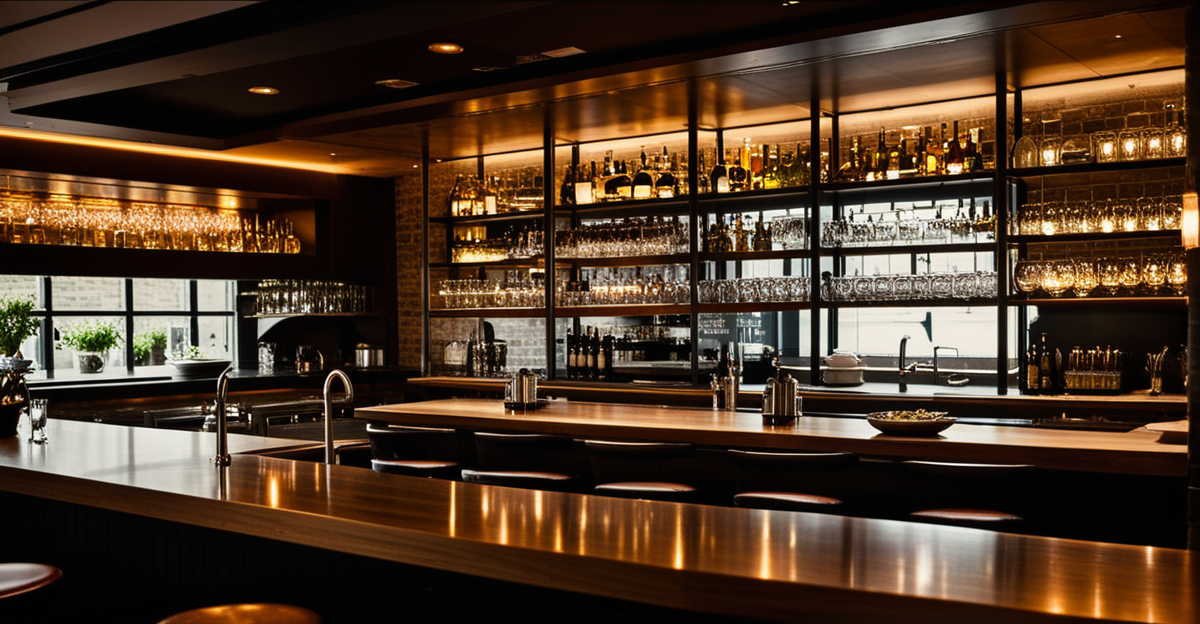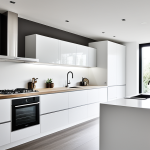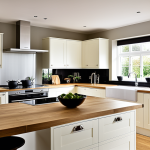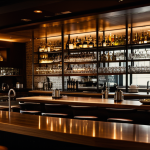Key Elements of a Memorable Kitchen Bar Experience
Creating an outstanding kitchen bar experience UK hinges on a combination of factors. First, the restaurant design tips emphasize balancing functionality with inviting aesthetics. A well-planned layout facilitates smooth traffic flow while allowing customers to witness the culinary craft up close, enhancing engagement.
Ambiance plays a crucial role: lighting, sound, and décor contribute to a warm yet vibrant atmosphere that aligns with current British restaurant trends. For instance, incorporating elements like reclaimed wood or industrial metals reflects the evolving tastes in UK dining spaces, blending tradition with modernity.
In the same genre : How can UK restaurants optimize space for efficiency?
Staff interaction is equally essential. Friendly, knowledgeable team members foster a welcoming environment and personalize service, crucial for curating the perfect kitchen bar experience UK. The staff’s understanding of local cuisine and culture informs their approach, strengthening the connection to British culinary heritage.
Moreover, integrating British culinary identity deepens the experience. This includes showcasing local ingredients, traditional recipes with a twist, and contemporary presentation styles. Together, these aspects ensure that the kitchen bar not only serves drinks and food but tells a story, captivating guests and leaving a lasting impression.
Also to discover : How Can You Transform Your UK Kitchen into a Restaurant or Bar Experience?
Innovative Design Concepts for UK Kitchen Bars
Designing a standout kitchen bar in the UK requires fresh kitchen bar design ideas that go beyond conventional layouts. Innovative UK restaurant innovation often focuses on creating a space where guests feel intimately involved with the cooking and drink preparation process. A popular approach is to position the bar centrally, allowing customers to watch chefs and bartenders collaborate seamlessly. This fosters interaction, making the kitchen bar experience UK not just about consumption, but participation.
Creative use of space is essential, especially in urban settings where square footage is limited. Modular fixtures, flexible seating, and multi-functional surfaces allow restaurants to adapt swiftly to fluctuating customer volumes, a key element in British restaurant trends catering to both casual and fine dining atmospheres.
Another distinctive feature of British decor trends seen in kitchen bars is blending heritage materials like exposed brick and brass fixtures with contemporary minimalist elements. This creates a welcoming yet stylish vibe reflective of modern British identity. For example, open shelving featuring local spirits and artisanal glassware serves both practical and aesthetic purposes, reinforcing authenticity.
Incorporating these innovative design concepts helps UK kitchen bars enhance guest engagement and set new standards for a memorable dining experience.
Staff Training and Customer Engagement Strategies
Effective staff training UK hospitality is pivotal for delivering an exemplary kitchen bar experience UK. Training programs must focus on cultivating seamless collaboration between chefs, bartenders, and front-of-house teams. When staff effortlessly interact with guests, it elevates the atmosphere and encourages greater customer engagement bar.
Techniques such as role-playing and scenario-based learning help staff anticipate and respond to diverse customer needs. An interactive dining UK setting benefits from personnel skilled in explaining dish origins and drink pairings, fostering a more immersive experience. Staff knowledge should extend beyond service basics to include detailed understanding of British ingredients and cocktails. This ensures conversations resonate authentically with evolving British restaurant trends.
Personalized interaction is key. Greeting guests warmly, remembering preferences, and suggesting bespoke dishes or drinks based on regional specialties create memorable visits. Encouraging staff to share stories behind local ingredients or cocktail recipes deepens the connection, aligning with the UK’s emphasis on culinary identity within kitchen bars.
In summary, investing in comprehensive staff training UK hospitality not only boosts operational efficiency but also enhances customer engagement bar, turning routine visits into meaningful experiences inspired by British culinary heritage.
Recommended Equipment and Bar Setup
Selecting the right bar equipment UK is fundamental for creating an efficient and inviting kitchen bar experience. Key items include high-quality, durable glassware suited to a variety of drinks, professional-grade cocktail shakers, and precision tools like muddler and jiggers to ensure consistent portions. An effective ice system should integrate seamlessly to meet busy service demands without compromising speed or quality.
Efficiency in bar setup relies heavily on well-organized stations that minimize unnecessary movement. Placing frequently used items—such as spirits, garnishes, and tools—within easy reach enhances workflow and reduces service time. Workflow design often follows a logical sequence: preparation, mixing, garnish, and serving, which helps staff maintain focus during peak hours.
When sourcing UK restaurant essentials, prioritizing products designed for local conditions increases longevity and performance. For example, using chilled bottle dispensers calibrated to British climate helps maintain optimal beverage temperature.
In addition, technology such as digital inventory systems and integrated point-of-sale devices can streamline operations, improving accuracy and reducing waste. Investing in these solutions reflects progressive UK restaurant essentials thinking, supporting both operational needs and elevated customer service within modern kitchen bars.
Integrating British Culinary Trends into the Kitchen Bar
Creating a distinct kitchen bar experience UK requires embedding British food trends seamlessly into the offering. A major focus is featuring local ingredients bar sourced seasonally from UK producers, which not only supports sustainability but elevates authenticity. For example, incorporating heirloom vegetables, artisan cheeses, or native herbs into both cocktails and small plates ties the menu to regional heritage.
The rise of contemporary UK cocktails is noteworthy. Bartenders now blend traditional spirits like gin or Scotch whisky with imaginative, locally inspired infusions, creating bespoke drinks that celebrate British flavours. Cocktail menus often rotate to reflect seasonal changes, encouraging repeat visits and ongoing engagement with evolving tastes.
Small plates or bar snacks also play a key role, reflecting modern British culinary identity. Dishes highlighting regional specialities—such as Cornish pasties or Scottish smoked salmon—offer guests a taste journey across the UK within a single session. This strategy aligns perfectly with growing desire for experiential dining that blends casual drinking with adventurous eating.
In sum, integrating seasonal local ingredients bar with inventive UK cocktails and thoughtfully crafted small plates helps kitchen bars embody current British food trends. This approach turns a simple visit into a rich exploration of UK gastronomy, strengthening the overall kitchen bar experience.
Key Elements of a Memorable Kitchen Bar Experience
Creating a standout kitchen bar experience UK relies heavily on thoughtful restaurant design tips tailored to British preferences and trends. A successful kitchen bar balances functionality with charm, ensuring the layout promotes interaction between guests and staff while supporting efficient service. The ambiance must blend comfort and energy, reflecting current British restaurant trends such as natural materials and warm lighting that invite guests to linger.
The spatial arrangement influences customer perception profoundly. Open-plan designs allowing direct sightlines to food preparation foster transparency and trust, making customers feel part of the process. Incorporating elements like communal seating or bar stools encourages sociability, essential in the UK’s evolving hospitality culture.
Staff play a pivotal role in elevating the kitchen bar experience. Trained team members who engage customers with genuine enthusiasm support the atmosphere and reinforce connection to the British culinary identity. Their knowledge of locally sourced ingredients and traditional recipes, presented with a modern twist, strengthens the authenticity sought by patrons.
Integrating British culinary identity reinforces the experience further. Employing seasonal, regional produce both in dishes and drinks creates an immersive environment that celebrates UK heritage while keeping pace with innovative dining trends. This synergy makes each visit memorable and culturally resonant.




